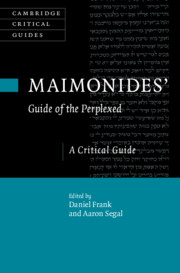43 results
The Philosophy of Worship
- Divine and Human Aspects
- Coming soon
-
- Expected online publication date:
- November 2024
- Print publication:
- 31 October 2024
-
- Book
- Export citation
Do We Look Material? Human Ontology and Perceptual Evidence
-
- Journal:
- Canadian Journal of Philosophy / Volume 53 / Issue 2 / February 2023
- Published online by Cambridge University Press:
- 13 December 2023, pp. 172-186
-
- Article
-
- You have access
- Open access
- HTML
- Export citation
Referencing the Region
-
- Journal:
- Latin American Research Review / Volume 29 / Issue 3 / 1994
- Published online by Cambridge University Press:
- 05 October 2022, pp. 257-264
-
- Article
-
- You have access
- Export citation
Africa and the United States Media
-
- Journal:
- African Issues / Volume 6 / Issue 2-3 / Summer/Fall 1976
- Published online by Cambridge University Press:
- 13 August 2021, pp. 49-56
- Print publication:
- Summer/Fall 1976
-
- Article
- Export citation
Contributors
-
- Book:
- Maimonides' <I>Guide of the Perplexed</I>
- Published online:
- 18 June 2021
- Print publication:
- 01 July 2021, pp vii-viii
-
- Chapter
- Export citation
Bibliography
-
- Book:
- Maimonides' <I>Guide of the Perplexed</I>
- Published online:
- 18 June 2021
- Print publication:
- 01 July 2021, pp 286-305
-
- Chapter
- Export citation
Index
-
- Book:
- Maimonides' <I>Guide of the Perplexed</I>
- Published online:
- 18 June 2021
- Print publication:
- 01 July 2021, pp 306-316
-
- Chapter
- Export citation
Part I - Form
-
- Book:
- Maimonides' <I>Guide of the Perplexed</I>
- Published online:
- 18 June 2021
- Print publication:
- 01 July 2021, pp 9-48
-
- Chapter
- Export citation
Copyright page
-
- Book:
- Maimonides' <I>Guide of the Perplexed</I>
- Published online:
- 18 June 2021
- Print publication:
- 01 July 2021, pp iv-iv
-
- Chapter
- Export citation
Part V - Human Finitude
-
- Book:
- Maimonides' <I>Guide of the Perplexed</I>
- Published online:
- 18 June 2021
- Print publication:
- 01 July 2021, pp 207-244
-
- Chapter
- Export citation
Part IV - The Created
-
- Book:
- Maimonides' <I>Guide of the Perplexed</I>
- Published online:
- 18 June 2021
- Print publication:
- 01 July 2021, pp 141-206
-
- Chapter
- Export citation
Part III - The Creator
-
- Book:
- Maimonides' <I>Guide of the Perplexed</I>
- Published online:
- 18 June 2021
- Print publication:
- 01 July 2021, pp 81-140
-
- Chapter
- Export citation
Part VI - Human Ends
-
- Book:
- Maimonides' <I>Guide of the Perplexed</I>
- Published online:
- 18 June 2021
- Print publication:
- 01 July 2021, pp 245-285
-
- Chapter
- Export citation
Chapter 6 - His Existence Is Essentiality
- from Part III - The Creator
-
-
- Book:
- Maimonides' <I>Guide of the Perplexed</I>
- Published online:
- 18 June 2021
- Print publication:
- 01 July 2021, pp 102-124
-
- Chapter
- Export citation
Introduction
-
-
- Book:
- Maimonides' <I>Guide of the Perplexed</I>
- Published online:
- 18 June 2021
- Print publication:
- 01 July 2021, pp 1-8
-
- Chapter
- Export citation
Contents
-
- Book:
- Maimonides' <I>Guide of the Perplexed</I>
- Published online:
- 18 June 2021
- Print publication:
- 01 July 2021, pp v-vi
-
- Chapter
- Export citation
Part II - Human Beginnings
-
- Book:
- Maimonides' <I>Guide of the Perplexed</I>
- Published online:
- 18 June 2021
- Print publication:
- 01 July 2021, pp 49-80
-
- Chapter
- Export citation

Maimonides' Guide of the Perplexed
- A Critical Guide
-
- Published online:
- 18 June 2021
- Print publication:
- 01 July 2021
Bassey W. Andah. Nigeria's Indigenous Technology. Ibadan: Ibadan University Press, 1992. 141 pp. Bibliography. Index. $15.00. Paper. - Gloria Thomas-Emeagwali, ed. Science and Technology in African History with Case Studies from Nigeria, Sierra Leone, Zimbabwe, and Zambia. Lewiston, MN: The Edwin Mellen Press, 1992. 241 pp. Price not reported. Cloth.
-
- Journal:
- African Studies Review / Volume 37 / Issue 3 / December 1994
- Published online by Cambridge University Press:
- 23 May 2014, pp. 135-136
-
- Article
- Export citation
Joshua Golding The Conversation: A Novel. (Jerusalem: Urim Publications, 2011). Pp. 527. £18.63 (Hbk). ISBN 978 965 524 066 5.
-
- Journal:
- Religious Studies / Volume 50 / Issue 1 / March 2014
- Published online by Cambridge University Press:
- 28 November 2013, pp. 133-138
- Print publication:
- March 2014
-
- Article
- Export citation

